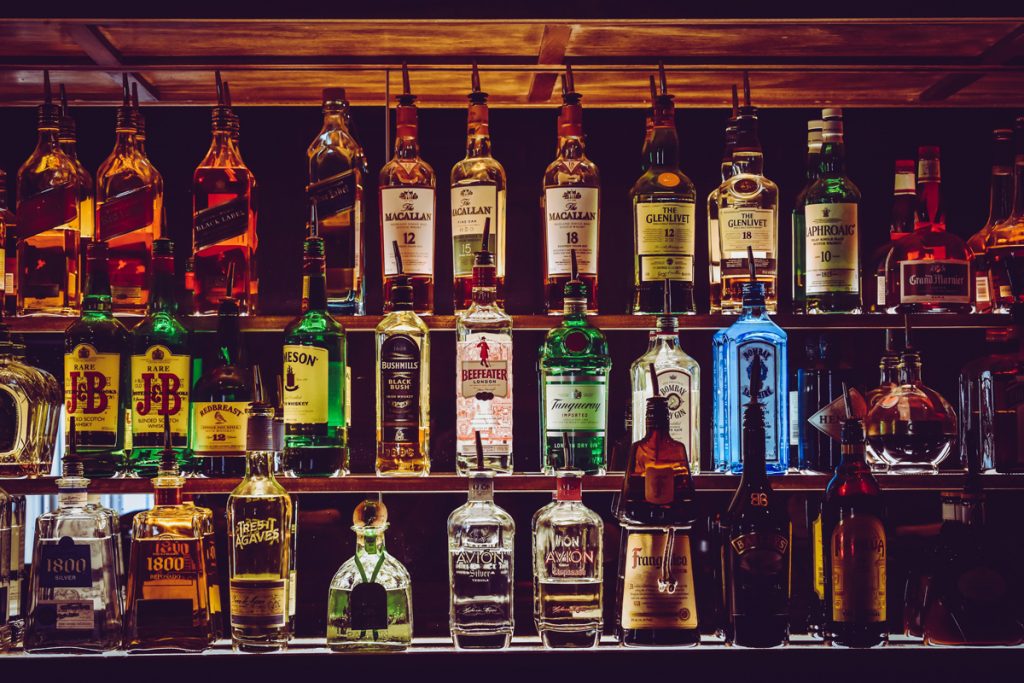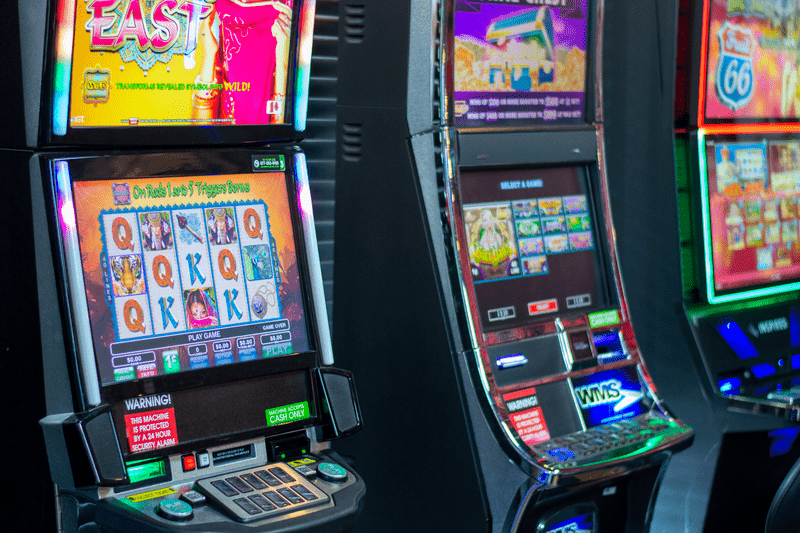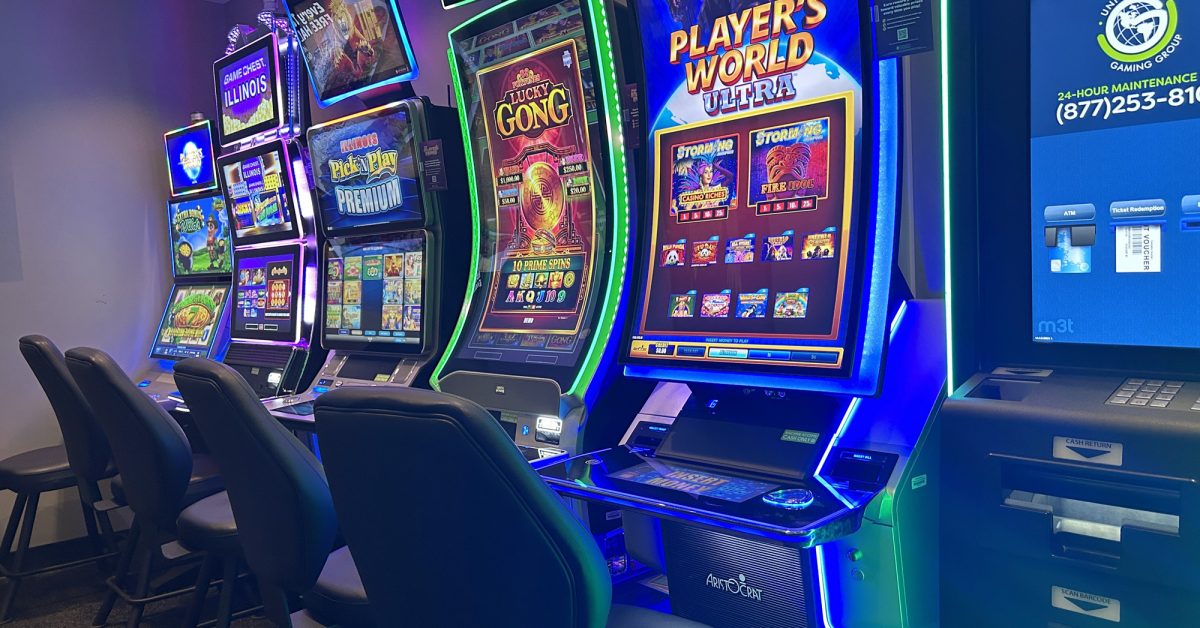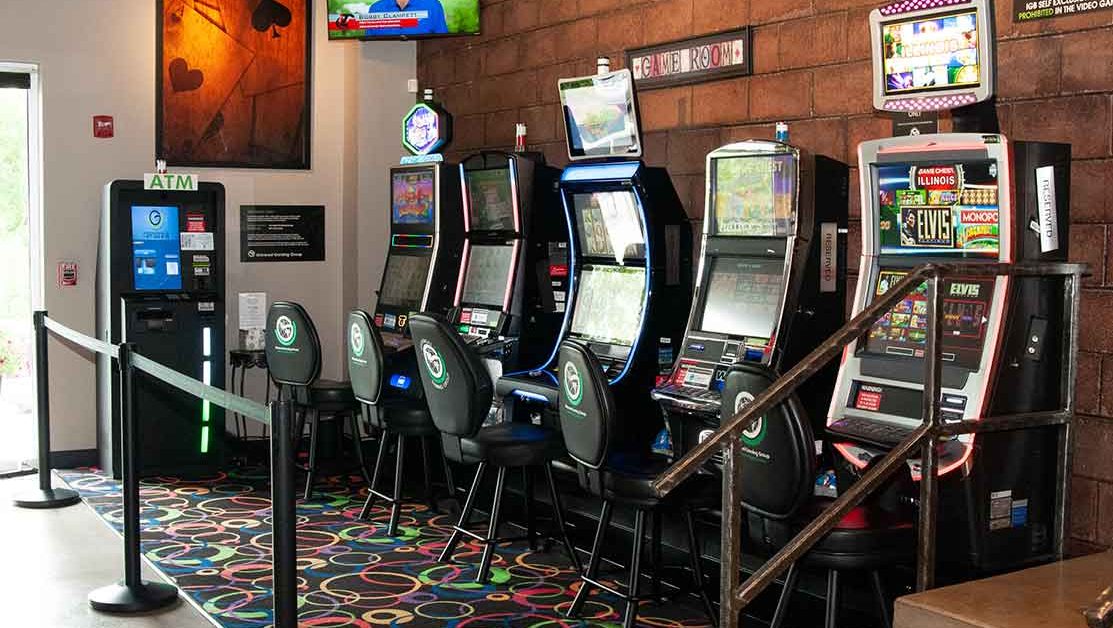
I. Introduction
Understanding the importance of liquor licenses is crucial for any business in Illinois’ vibrant and ever-growing hospitality industry. Obtaining a liquor license to legally sell and serve alcoholic beverages brings with it a myriad of benefits–from increased revenue and customer satisfaction to enhancing the overall appeal of a venue.
In this article, we will delve into the benefits of obtaining a liquor license in Illinois, as well as provide a brief overview of the liquor license process, shedding light on the necessary steps and considerations involved in securing this vital permit.
As a leader in the gaming and entertainment industry since 2009, we’ve established strong working relationships with local authorities and regulators in Illinois to help our partners with their businesses. Contact us today to have one of our experts help you work on obtaining your local Illinois liquor license.
II. Types of Liquor Licenses in Illinois
Retailer, Off-Premise Consumption:
Off-premise licenses are for businesses where alcohol is intended to be carried out of the establishment and not for resale. The fee for this license is $750 and includes the following types of establishments:
- Liquor Stores
- Grocery Stores
- Convenience Stores
- Gas Stations
Retailer, On-Premise Consumption:
On-premise consumption licenses are for businesses where alcohol is intended to be consumed solely on the property. Alcohol is not permitted to be resold. A certificate of insurance is required for licensees with on-premise consumption or a combination of on/off-premise consumption. These licenses cost $750 and include the following establishments:
- Taverns
- Restaurants
- Hotels
- Convenience Stores
- Package Goods
- Veterans’ and Fraternal Organizations
Special Use Permit:
A Special Use Permit is required for current retail liquor license holders to hold any special off-premise event(s). The cost of the license is $150.00 for a one day event, $250.00 if the event’s duration is two days or more up to a maximum of 15 consecutive calendar days.
III. Eligibility Requirements for Obtaining a Liquor License in Illinois
Age Restrictions
Though the minimum age requirement to serve alcoholic beverages is 18 years of age federally, no one under the age of 21 may apply for a liquor license in Illinois.
Residency Requirements
In order to obtain a license, the business cannot be a sole proprietorship unless the applicant is a proven resident of the city for one year prior to the filing of the official license application. Any other license requires that the applicant is a “resident of the city or lives within 30 minutes of the licensed premises.”
Background Checks and Character References
The state will run a full background check on all applicants to ensure the safe administering of licenses. Any applicants who have a criminal record of any kind, have a business not in good standing, or have had a license revoked for any reason may be denied licensure.
Financial and Insurance Obligations
In order to maintain a liquor license in Illinois, businesses must obtain alcoholic liability/dramshop coverage. Businesses are required to be in good financial standing and maintain this throughout the duration of their license.
IV. Application Process for Obtaining a Liquor License in Illinois
Obtaining the Application Forms
Obtaining liquor license forms in Illinois is a straightforward process that begins with contacting the Illinois Liquor Control Commission (ILCC). The ILCC is the regulatory body responsible for overseeing the issuance of liquor licenses in the state. To obtain the necessary forms, interested parties can visit the ILCC’s official website or contact their office directly.
On the ILCC website, there is a dedicated section that provides access to various liquor license forms, including applications for new licenses, renewals, transfers, and modifications. These forms can be downloaded and printed. Additionally, the ILCC website offers comprehensive instructions and guidance on completing the forms correctly, ensuring a smooth and efficient application process.
Understanding Application Fees
Understanding the fees associated with applying for a liquor license in Illinois is crucial for applicants to effectively budget and plan their application process. The Illinois Liquor Control Commission (ILCC) provides comprehensive information regarding the fees on their official website. The fees vary depending on the type of license being sought and the establishment’s classification. Applicants can refer to the ILCC’s fee schedule, which outlines the specific costs associated with each license category.
Additionally, the ILCC website provides instructions on how and when to submit payment for the fees, ensuring that applicants comply with the necessary financial obligations during the application process. By understanding the fees involved, applicants can better navigate the financial aspect of obtaining a liquor license in Illinois.
Gathering Required Documentation
When applying for a liquor license in Illinois, several key documents are required to complete the application process. First and foremost, applicants must provide proof of ownership or a lease agreement for the establishment where the liquor license will be issued. This documentation validates the applicant’s legal right to operate the business.
Additionally, zoning compliance documentation is necessary to demonstrate that the establishment meets local zoning requirements for operating a liquor business. This typically includes obtaining a certificate of occupancy or clearance from the local zoning department. A floor plan and layout of the premises are also essential, as they provide a visual representation of the establishment’s interior, including the location of the bar, seating areas, restrooms, and other relevant details.
Lastly, applicants must furnish employee and management information, including background checks, to ensure that individuals involved in the operation of the business meet the necessary legal and ethical standards. By providing these required documents, applicants can effectively demonstrate their eligibility and readiness to obtain a liquor license in Illinois.
Submitting the Application
The completed application, along with the supporting documents, must be submitted to the ILCC for review, which can be done on the ILCC website. It is important to pay attention to any specific instructions or additional requirements outlined by the ILCC during the application process.
The ILCC will then review the application, conduct any necessary background checks, and assess compliance with applicable laws and regulations.
Review and Approval Process
Depending on the type of license and the complexity of the application, the review process may take several weeks or months. Once approved, the applicant will receive their liquor license, enabling them to legally sell and serve alcoholic beverages in Illinois.
V. Local Considerations and Restrictions
Local Licensing Authorities and Regulations
Understanding the local regulations is key to applying for a liquor license in Illinois, as city councils, zoning boards, and licensing departments play a crucial role in the licensing process.
Familiarizing oneself with the specific requirements and regulations imposed by these local authorities will help to ensure a smooth application process and increase the chances of obtaining the desired license. Each city or municipality may have unique zoning restrictions, operational guidelines, and licensing procedures that must be adhered to. Failure to comply with these local regulations can result in delays, rejections, or even penalties.
By understanding and actively engaging with local authorities, applicants can demonstrate their commitment to operating within the established guidelines, gain local support, and navigate the licensing process more effectively. Moreover, by staying informed about local regulations, applicants can proactively address any concerns or requirements, ultimately fostering positive relationships with the community and increasing the likelihood of a successful liquor license application or renewal.
Hours of Operation Restrictions
In Illinois, the hours of operation for establishments holding a liquor license are regulated by law–including some restrictions on when liquor can and cannot be sold in your establishment. Adhering to these regulations is crucial for license holders to maintain compliance with the law and ensure the responsible sale and service of alcoholic beverages in Illinois. These regulations can vary locally, including within the city limits of Chicago. Visit the ILCC website for more information on hours of operation restrictions.
Distance Restrictions (Proximity to Schools or Places of Worship)
In Illinois, the law prohibits the issuance of a liquor license for the retail sale of alcoholic beverages within 100 feet of specific establishments such as churches, schools, hospitals, homes for the aged or indigent persons, veterans’ homes, and military or naval stations. However, there are exceptions. Clubs, restaurants, food shops, or other establishments where the primary business is not the sale of alcoholic liquor are exempted from this restriction if they were established before the enactment of the relevant chapter of the law.
Additionally, the law allows for the renewal of a license for the sale of liquor on premises within 100 feet of a church if the church was established within the 100 feet distance after the original license was issued. This provision acknowledges the existence of licensed businesses prior to the establishment of nearby churches and allows them to continue their operations upon license renewal.
Additional Licensing Requirements (Food Service, Security Measures, etc.)
In addition to the general requirements for obtaining a liquor license in Illinois, the Illinois Liquor Control Act imposes some certain additional licensing requirements for compliance. Some of the key additional licensing requirements include:
- Dram Shop Liability Insurance: Licensees are required to carry dram shop liability insurance. This insurance provides coverage for claims that may arise from injuries or damages caused by individuals who have consumed alcohol at the licensed establishment.
- Health and Safety Compliance: Licensees must comply with health and safety regulations, including maintaining proper sanitation, food handling practices (if applicable), and compliance with fire and building codes. Inspections may be conducted by relevant authorities to ensure compliance.
It is important for licensees to thoroughly understand and comply with these additional licensing requirements to operate within the framework of the Illinois Liquor Control Act and maintain compliance with the state’s regulations. Failure to meet these requirements may result in penalties, fines, or even the revoked liquor licenses.
VI. Compliance and Regulations
Illinois Liquor Control Act Compliance
As mentioned above, the ILCC has its own standard operating requirements and it is important to maintain compliance with these requirements in order to remain in good standing.
Training and Certification Requirements
Licensees and their employees are expected to undergo responsible beverage service training. This training helps promote responsible alcohol service, including techniques to prevent underage drinking, identifying and managing intoxicated individuals, and understanding legal obligations and liabilities.
Mandatory Reporting and Record-Keeping
Licensees are required to maintain accurate records related to liquor sales, including inventory, purchase orders, invoices, and sales receipts. Compliance with recordkeeping and reporting requirements is essential for monitoring and enforcement purposes.
Licensees must also strictly adhere to age verification protocols to prevent the sale or service of alcohol to minors. Valid forms of identification, such as driver’s licenses or passports should be checked to confirm the legal drinking age.
Compliance Inspections and Audits
Licensees can expect to undergo compliance inspections and audits to ensure adherence to the regulations and requirements of the Illinois Liquor Control Act. Here’s what licensees can generally expect:
- Routine Inspections: Regulatory authorities, such as the Illinois Liquor Control Commission (ILCC), may conduct routine inspections of licensed establishments. These inspections aim to assess compliance with liquor laws, regulations, and license conditions. Inspectors may check various aspects, including age verification practices, recordkeeping, cleanliness, health and safety compliance, and proper licensing display.
- Compliance Audits: Compliance audits may be conducted by the ILCC or other relevant agencies. These audits involve a thorough examination of the licensee’s records and operations to ensure compliance with applicable laws and regulations. Audits may focus on areas such as liquor inventory, purchase records, sales receipts, financial reporting, tax compliance, and employee training records.
- Notification and Schedule: Typically, compliance inspections and audits are conducted with prior notification to the licensee. The notification usually includes the purpose, date, and time of the inspection or audit. However, unannounced inspections may also be carried out in specific cases, especially when there are complaints or concerns about potential violations.
- Compliance Evaluation and Findings: During inspections and audits, compliance officers evaluate the licensee’s adherence to regulations and document any findings or violations. If violations or non-compliance are identified, licensees may be given a chance to address and rectify the issues within a specified timeframe. Serious violations may result in penalties, fines, or other enforcement actions.
- Education and Guidance: Compliance inspections and audits also serve as opportunities for education and guidance. Inspectors may provide recommendations and information on best practices to help licensees improve compliance and ensure responsible alcohol service.
The best way to be prepared for compliance inspections and audits is by maintaining accurate records, ensuring staff is trained, and regularly reviewing and updating their practices to align with current regulations. It is essential to cooperate with inspectors, address any identified issues promptly, and take corrective actions to maintain compliance and uphold the liquor license.
VII. Renewal, Transfers, and Modifications
Renewing Your Liquor License
To renew your liquor license in Illinois, follow these steps:
- Review Renewal Period: Determine the renewal period for your liquor license. The Illinois Liquor Control Commission (ILCC) typically sends out renewal notices to license holders several months before the expiration date.
- Gather Required Documents: Collect the necessary documents for the renewal process. These may include the renewal application form provided by the ILCC, proof of liability insurance (dram shop insurance), updated floor plans and layout (if applicable), and any other supporting documents as requested.
- Complete the Renewal Application: Fill out the renewal application form accurately and thoroughly. Ensure all information is up to date, including contact details, ownership information, and any changes in business operations or management.
- Submit Application and Fees: Submit the completed renewal application along with any other required documents to the ILCC. Pay the renewal fees as outlined by the ILCC. The fees may vary based on the type of license and the classification of the establishment.
- Compliance and Background Checks: The ILCC may conduct compliance checks and background checks as part of the renewal process. Ensure that your establishment remains in compliance with all applicable laws, regulations, and licensing requirements.
- Address Any Outstanding Issues: If there were any violations or compliance issues identified during the previous licensing period, rectify them before submitting the renewal application.
- Follow Timeline and Deadlines: Adhere to the specified timeline and deadlines provided by the ILCC for renewal applications. Late submissions may result in penalties or the need to reapply as a new applicant.
- Await Confirmation: After submitting the renewal application, await confirmation from the ILCC regarding the approval of your renewal. It is advisable to maintain open communication with the ILCC throughout the process.
Remember to start the renewal process well in advance to allow ample time for processing and potential inquiries or follow-ups. By proactively submitting a complete and accurate renewal application, addressing any outstanding issues, and staying in compliance with regulations, you will have a much easier time renewing your Illinois liquor license.
Transferring Ownership or Location
Transferring the ownership or location of a liquor license in Illinois involves a specific procedure to ensure compliance with the state’s regulations. To initiate the transfer process, the current license holder and the proposed new owner or location must submit a written request to the Illinois Liquor Control Commission (ILCC). The request should include relevant details such as the current license information, the proposed new owner or location, and the reason for the transfer.
The ILCC will review the request and may require additional documentation, such as a new lease agreement or purchase contract. Additionally, the ILCC may conduct background checks and inspections as part of the transfer process. It is crucial to follow the instructions provided by the ILCC and maintain open communication throughout the transfer process to ensure a smooth transition and compliance with all legal requirements.
Modifications and Amendments to Liquor Licenses
Modifications and amendments to liquor licenses in Illinois allow license holders to make changes to their existing licenses based on specific needs or circumstances. These changes may include alterations to the licensed premises, changes in ownership structure, adjustments to operating hours, or modifications to the types of alcoholic beverages being sold. To initiate a modification or amendment, license holders must submit a written request to the Illinois Liquor Control Commission (ILCC), providing details about the proposed changes and the reasons behind them.
The ILCC will review the request and may require additional documentation, such as updated floor plans, lease agreements, or proof of financial responsibility. Depending on the nature of the modification or amendment, the ILCC may conduct inspections, background checks, or public hearings. It is essential to adhere to the instructions and guidelines provided by the ILCC throughout the process to ensure compliance with licensing regulations and facilitate the desired changes to the liquor license.
VIII. Summary
Here’s a quick summary of important things to remember when applying for a liquor license in Illinois.
- Types of Licenses: There are different types of liquor licenses available in Illinois, including off-premise consumption licenses, on-premise consumption licenses, and special event licenses. Each license has specific requirements and restrictions.
- Eligibility Requirements: These include age restrictions, residency requirements, background checks, and financial and insurance obligations. Compliance with these requirements is essential for successful licensure.
- Compliance and Regulations: Maintaining compliance with the Illinois Liquor Control Act and local regulations includes training and certification requirements, mandatory reporting and record-keeping, and compliance inspections and audits. Adhering to these regulations is crucial to obtaining and renewing liquor licenses in Illinois, and ensuring responsible alcohol service.
Maintaining compliance is of utmost importance in Illinois due to the significant benefits that come with obtaining a liquor license. By understanding the liquor license process, meeting eligibility requirements, and complying with regulations, businesses can successfully obtain and maintain their liquor licenses in Illinois.
With experience across a wide variety of businesses, Universal Gaming Group can help answer questions and advise businesses on the liquor license requirements and application process in Illinois. Please contact us if you would like to talk about your needs.
IX. FAQs (Frequently Asked Questions)
- How long does it take to obtain a liquor license in Illinois?
- Depending on the type of liquor license and whether the applicant has any issues in their background check, the license review process could take anywhere from several weeks to months.
- Can I apply for multiple types of liquor licenses?
- There are some businesses that might benefit from a combination license.
- What are the penalties for non-compliance with liquor license regulations?
- Depending on the level of non-compliance, penalties can range from fines to potential prosecution of the licensee.
- Can a liquor license be revoked or suspended?
- Yes, depending on the level of non-compliance.
- Are there any exceptions or special considerations for craft breweries or wineries?
- There are special licensing requirements and types for breweries and wineries that differ from retail locations or restaurants. Visit the ILCC website for more information and special applications.




